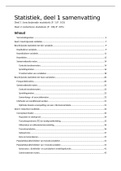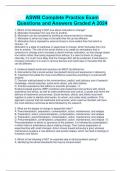‘Reducing the dietary intake of refined sugars’
I decided to try to reduce my intake of foods and drinks high in refined sugars. The
following report looks at how this eating behaviour and behaviour change may be influenced
by personality and exercise, as well as how they might be explained by the Health Behaviour
Model (HBM).
Factor 1- Personality
Colman (2015, p.564) defined personality as ‘the sum total of the behavioural and mental
characteristics that are distinctive of an individual’. The Five Factor Model of Personality, also
known as the Big Five, argues that there are five fundamental personality dimensions, namely
openness to new experience, conscientiousness, extraversion, agreeableness and
neuroticism (McCrae & John 1992, p.176). Personality traits have been found to influence
dietary habits both directly (via food choices) as well as indirectly (via promoting certain
eating styles) (Mottus et al., 2011; Tianinen et al., 2013).
High scorers on neuroticism are characterized by emotional instability, moodiness,
nervousness and irritability. This trait was positively associated with obesity (Sutin et al.
2011), and a poorer quality diet characterized by high intakes of sugar and fat (Tianinen et al.
2013). Keller & Siegrist (2015) reported that neuroticism can be linked to the promotion of
external and emotional eating styles, both of which were positively associated with the
consumption of calorie-dense foods and drinks (Elfhag, Tynelius & Rasmussen 2007).
Neurotics, who are also low on conscientiousness, have a higher tendency to be impulsive
and an impaired ability to resist tempting convenience foods. However, Turiano et al. (2013)
argued that high neuroticism can be advantageous, when it is accompanied by high
conscientiousness. ‘Healthy neurotics’ do not tend to resort to health compromising
activities. Being conscientious seemingly equips them with the right resources to channel
their negative emotions into more health promoting behaviours.
Conscientious individuals are generally described as organized, consistent and disciplined.
High conscientiousness was linked to a reduced intake of unhealthy sugary and savoury foods.
Stoebe et al. (2013) argued that conscientious people are less likely to engage in external and
1
, emotional eating; possibly due to their effective coping strategies and their ability to assert a
higher level of self-control, which enables them to stick to their healthy diet plan, and resist
tempting comfort foods.
Openness to experience was found to have a direct positive effect on food choice. Open
people are more likely to eat plenty of fruits and vegetables, and to avoid or eat less
convenience foods such as sweets (Brummett et al., 2008; Mottus et al., 2011). Researchers
have theorized that those who score high on this dimension probably eat a wider variety of
foods and follow a more healthier diet, because they are more intellectually-curious,
adventurous and open-minded about trying out novel foods.
I score high on openness, which I believe has facilitated my eating behaviour change both
directly and indirectly. Being open-minded about experimenting with healthier foods and
sugar substitutes, as well as curious about and relatively susceptible to nutrition advice have
helped me to reduce my refined sugar intake. However, I am also a neurotic, who happens to
score relatively low on conscientiousness. Although I love healthy foods, at times of stress, I
have a tendency to indulge in high-energy dense sugary foods to comfort myself. This trait
combination has hindered my eating behaviour change indirectly via promoting emotional
eating. Personality traits were found to endure over decades in adults (McCrae & Costa 1990),
which suggests that changing them can be very hard even with training. However, there has
been some success in addressing the related negative eating styles.
Factor 2- Exercise
Researchers have proposed that physical activity might be a promising intervention
strategy, as it was shown to elevate mood (Ekkekakis et al. 2000), and reduce physiological
responses to stress (Hamer, Taylor & Steptoe 2006). Several studies (Ledochowski et al., 2015;
Oh & Taylor, 2013) reported that physical activity can reduce stress elicited cravings for and
attentional bias to sugary snacks in regular consumers irrespective of body mass.
I started to exercise meaningfully at the same time I initiated my health diary. Personally,
I found that exercise has facilitated my eating behaviour change via promoting an overall
sense of well-being and providing a coping strategy. In response to distress, I still get the urge
to snack most times, but I have noticed that I am now more likely to go for healthier snacks
such as fruits and nuts instead of cookies, especially on days when I visit the gym. My own
2






